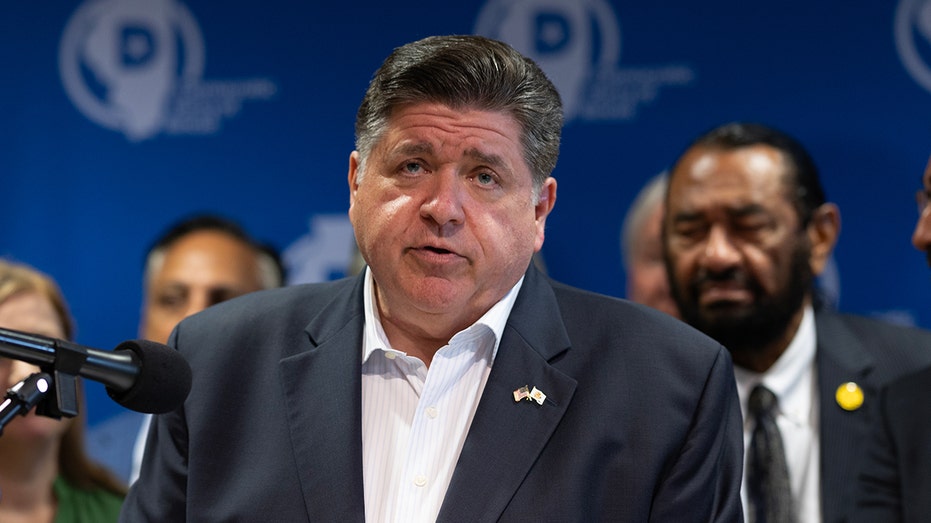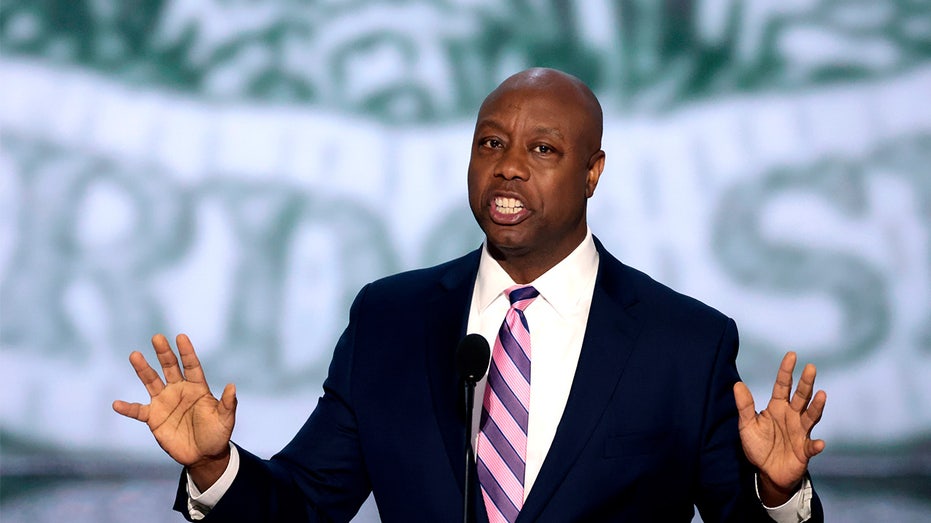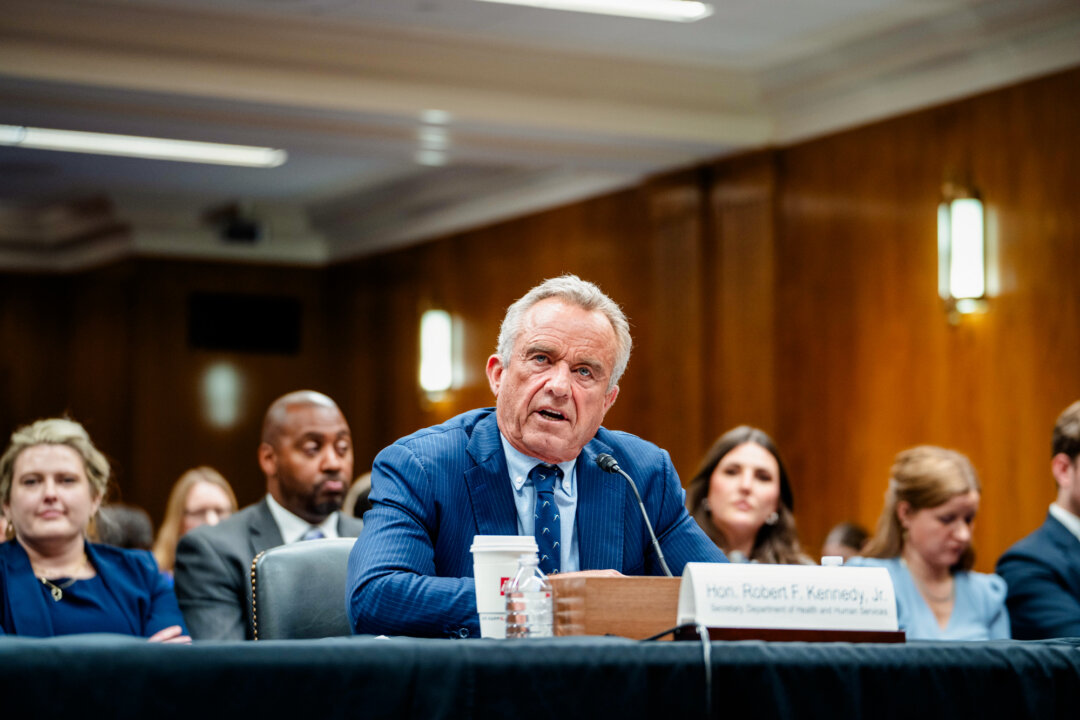Congressional Republicans have, with little resistance, accepted all manner of indignities since Donald Trump’s rise to power. They’ve been made to answer for his likening a porn star’s looks to a horse, his testimonial to the endowment of a deceased golfer and, more regularly, swallowed a tariff regime that is about as faithful to the foundations of their modern party as Das Kapital.
But the president now is testing whether party loyalty ever asks too much in the Trump era by all but signing the political death warrants of a handful of blue state Republicans.
That’s what the president is inviting with his demand that Texas Republicans redraw their House boundaries this year to hand him more seats, which he thinks will protect the GOP majority next year and protect him from what he dreads: being impeached a third time.
This mid-decade redistricting of the country’s largest red state predictably triggered a vow from the country’s largest blue state to do the same. How could Trump not grasp that California Gov. Gavin Newsom would respond by swinging with Ohtani-like fervor at an opportunity to insert himself in the national debate, build a trans-continental fundraising list and demonstrate his mettle to Democratic primary voters?
“He was not given the full picture of the ultimate consequences,” ventured Rep. Kevin Kiley, a California Republican whose seat will likely be eliminated should Democrats have their way with a new map. Kiley is being diplomatic about Trump, who, as the MAGA catechism goes, can only be failed but never fail himself.
The better question may be whether Trump cares at all that he may sacrifice the careers of a handful of blue state House GOP incumbents in service of snatching more red state seats.
Because that is exactly what Newsom intends.
“If Texas wants to rig the maps, California will make sure they pay a price,” the governor told me. “They want to steal five seats? We’ll match and secure more — and turn the tables on their entire strategy.”
Let’s pause for a moment to recognize that neither party has clean hands when it comes to redistricting. Both have long used the process to protect themselves and punish the opposition.
However, many Republicans, needing to rationalize yet another Trump power grab, have conflated the post-census, decennial process with what the president is doing: lunging for additional safe GOP seats in the middle of the decade because he finds the stigma of an impeachment hat trick humiliating. Don’t believe me? Just listen to any of his speeches when he recounts the unfairness of the previous two.
Trump’s move may well work. Even if California’s new map wipes out five Republicans and shores up some Democratic seats there, more than neutralizing GOP gains in Texas, the president can likely rely on additional red states such as Ohio, Missouri and Indiana to salute him and overhaul their congressional boundaries to squeeze out the few Democrats left in their delegations. And this is to say nothing of how many more majority-minority districts in red states could be wiped out should the Supreme Court effectively gut the Voting Rights Act before next year's elections.
Such an endgame will surely wind up in a series of state and federal courts, transforming the early going of the midterms into as much a legal fight as a political one. It would make for a mess.
And it wouldn’t stop with 2026. New York, for example, is constrained by its voter-approved independent redistricting commission and can’t undo the commission and redraw its House maps until the 2028 election.
But why would Democrats in Albany not do so if Trump effectively muscles a House majority into existence next year via a series of red states upending their own maps?
If New York Democrats do pursue such a redraw, it will likely doom the most politically vulnerable House Republicans still left there after the midterms.
Which gets to the cold reality for GOP lawmakers in California and New York: The very Republicans who helped deliver their party’s congressional majority by winning in the two mega-states in 2020 and 2022 could be collateral damage to Trump’s gambit.
That includes House veterans such as Reps. Darrell Issa and Ken Calvert, both of California, but also younger, promising Republican lawmakers such as Kiley, 40, and Rep. Mike Lawler (N.Y.), 38.
“This creates a situation where you’re going to lose blue state members, which over the long haul are critical to keeping the majority,” Lawler told me.
It's all, Lawler said, “mutually assured destruction once people go full throttle.”
The redistricting threat is especially cruel to Lawler, who was already eager to avoid yet another tough race in his Hudson Valley district by running for governor next year. But Trump made clear he preferred Rep. Elise Stefanik, a born-again MAGA disciple, as the standard-bearer even though running a Trump acolyte statewide may only ensure Stefanik ends next year where she started this year: hoping for a Trump cabinet appointment.
For Kiley, the Newsom reprisal to Trump may extinguish a congressional career that just began in 2023.
“I certainly hope sanity can prevail,” the California Republican told me.
Kiley has been the most outspoken in the state’s House delegation. He’s introduced a bill that would block all mid-decade redistricting efforts and, while sparing Trump, doesn’t mince words about his expectations of House GOP leaders.
“The onus is on the speaker, along with the minority leader, to get this chaos under control,” he said, pointedly adding that Speaker Mike Johnson “needs to show some leadership.”
Kiley said he had conveyed his alarm to Johnson and also reached out to the House GOP campaign arm. “I’ve made my views very clear on the matter, privately and publicly,” he said.
But the rest of the California Republican delegation — notably Calvert, an able lawmaker who holds the Defense gavel on the Appropriations Committee — has been more restrained. That may amount to a recognition that Kiley’s Put the Toothpaste Back in the Tube Act of 2025 is unlikely to see the light of day.
"As a Republican in California, I'm used to fighting for my political survival," quipped Calvert, vowing to fight what he called Newsom's "power grab at every opportunity."
Given how much Johnson depends on the president’s support to retain his post, there’s only so much the speaker could do to confront Trump on any matter, let alone something as delicate as denying Trump what he thinks Texas owes him.
The notion of Johnson telling Trump: “Mr. President, can you please give up your Texas play, it’s going to jam us in California and eventually New York” is… remote. In fact, it’s about as likely as Johnson telling Trump: “Mr. President, would you mind putting the same amount of time into selling your Big Beautiful Bill to voters that you commit to White House grounds renovation?”
So California Republicans, I’m told by California GOP officials, are being promised only legal, political and financial support from the House GOP — effectively a promise to help in the redistricting arms race rather than trying to stymie it altogether.
Shawn Steel, a longtime California Republican hand, is helping to organize the pushback against Newsom and was in Washington last week. And Charles Munger Jr., a wealthy California donor who helped fund the original effort to create an independent redistricting commission there, has reengaged and is hiring a legal team.
Unlike in Texas, where Gov. Greg Abbot can simply call a special session and legislators can redraw the lines, the bar is higher for Newsom in California. The Democrat needs to gather support for ballot measures this fall that will both eliminate the state’s independent commission and implement new, Democratic-drawn House maps for 2026.
Such initiatives will surely invite a tsunami of spending for and against, from liberal and conservative donors across the country and vault California (and Newsom) to the center of the country’s political consciousness in November.
“You’re going to see a lot of money spent on this because this is their only path,” Jessica Millan Paterson, the former California GOP chair, said of her state’s Democrats.
That the bar is higher for California Democrats than Texas Republicans enrages those Democrats who are not of the Common Cause persuasion and think they’re being played for chumps by instituting independent commissions in blue states that places like Texas would laugh at.
“We simply can’t have a situation in which Republicans are gerrymandering the hell out of red states while in blue states we abide by good government commissions,” said Rep. Brendan Boyle (D-Pa.). “The same rules need to apply equally, everywhere.”
Of course, part of the reason that there are fewer states for Democrats to redraw is because those blue states that are not ready for reform — Illinois! — have already indulged in expansive political cartography to maximize Democratic gains.
But to House Republicans now staring down early retirement, the redistricting wars “are bad across the board,” as Kiley put it.
A Harvard College and Yale Law graduate, Kiley said California’s reprisal redraw would be the opposite of the old line that good policy is good politics. “It’s bad for good government in our state and bad for the Republican cause in California,” he said.
Trump, Kiley insisted, “doesn’t want to see the California delegation upended or the New York delegation upended.”
Yet that’s exactly what he could get, at least after hundreds of millions of dollars are spent, dozens of court cases are waged and a referendum or two are passed.
But at least it would mean Trump is spared a third impeachment that, like the other two, would be killed by Senate Republicans.
.png)















 English (US)
English (US)